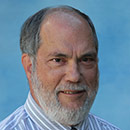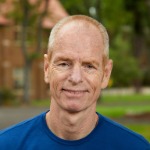Page 37 • (2,795 results in 0.022 seconds)
-
Wanting to connect with a local faith community? Below is a listing of local communities at PLU or in close proximity to the university. This listing is not comprehensive.
-USA Tacoma Buddhist Center (Soka Gakkai) 1610 S. Mildred St., Tacoma, WA, 98465 (253) 582-8520 Tacoma Buddhist Center (Ecumenical) @ Skill for Mind 2702 N. Proctor Street, Tacoma, WA 98407 (253) 237-3620 Tacoma Shambhala Meditation (Tibetan) Good Karma Center for Joy 711 St. Helens Ave., Tacoma, WA 98402 Christian Community All Saints Church Denomination: The Episcopal Church Worship Times: Sunday 8:00 and 10:30 AM 205 96th St E, Tacoma, WA 98445 (253) 301-0274 Church for All Nations Denomination
-
As a student who began at PLU during the 2022-23 academic year, you will be given the option to retain the previous GenEd requirements or switch (opt-in) to the new requirements.
Program to help you decide which set of requirements works best for you. You should talk with your academic advisor about the advantages and disadvantages of your selection. Additionally, you may consult our decision-making tool (see below). To help better align the two sets of requirements, students who choose to retain the previous GenEd Program will have the option to adjust ONE requirement in a few limited areas. Eligible students will be able to waive ONE of the following requirements: Christian
-

Director of the Joint Institute for the Study of the Atmosphere and Ocean (JISAO) and Professor of Atmospheric Sciences at the University of Washington | TEDxTacoma | Dr.
Climate Research Selected Articles Ackerman, T. P.. "Christian action in the face of climate change." Perspectives on Science & Christian Faith Vol. 66(4), 2014: 242-247. Wood, R. and T. P. Ackerman. "Defining success and limits of field experiments to test geoengineering by marine cloud brightening." Climatic Change Vol. 121, 2013: 459-472. Accolades NASA Distinguished Public Service Medal Leo Szilard Award for Science in the Public Interest, awarded by the American Physical Society Fellow of the
Area of Emphasis/Expertise -
Admission to the MSW program is based on a holistic review of your academic preparation, work and volunteer experiences, and potential contributions to the classroom experience, the social work
REQUIREMENTSHOW TO APPLYFAST TRACKTRANSFER CREDITSAdmission Requirements Admission to the MSW program is based on a holistic review of your academic preparation, work and volunteer experiences, and potential contributions to the classroom experience, the social work profession, and social justice. Admission into the MSW program is determined by faculty evaluation by the MSW Graduate Admissions Committee. Review of MSW applications is based on the following requirements: Advanced Standing (one
-

Associate Professor of Education | School of Education | byrnesrs@plu.edu | 253-535-7286 | Ron was a high school social studies teacher in Los Angeles and Ethiopia before completing his Ph.D.
Ron Byrnes Associate Professor of Education Phone: 253-535-7286 Email: byrnesrs@plu.edu Office Location:Hauge Administration Building Professional Biography Education Ph.D., University of Denver, 1993 M.Ed., University of California, Los Angeles, 1985 B.A., University of California, Los Angeles, 1984 Areas of Emphasis or Expertise High School Education Reform Cultural Globalization Social Studies Curriculum Development Biography Ron was a high school social studies teacher in Los Angeles and
Area of Emphasis/Expertise -
As a Latino Studies minor at PLU you will become part of an interdisciplinary learning community committed to intellectual inquiry around pressing issues of race, identity, gender, social class,
minor at PLU you will become part of an interdisciplinary learning community committed to intellectual inquiry around pressing issues of race, identity, gender, social class, citizenship and migration. Both urgent and timely, our minor intentionally serves the growing community of Latino/a/x students at PLU at the same time as inviting all students to explore the histories, cultural productions and intellectual traditions of the largest minoritized group in the United States. Whether you are
-
To fulfill the engineering internship requirement, PLU has enlisted the assistance of an advisory board consisting of engineering and science professionals to advise students in acquiring an
Minor in Engineering and Industry The minor in engineering and industry is centered on courses already offered for the university’s Dual Engineering Program. In addition to the math and science courses, students will complete an internship/industry experience and/or courses in business, economics, history and ethics. The minor will seamlessly integrate the professional study of technical topics with the liberal arts, and with professional engagement through the internship requirement.Internship
-
Communities of alumni, students, Parkland residents, and more all gather together to talk about philosophy, not to debate with one another, but to learn.
Philosophy professors. Dr. Sergia Hay teaches courses in applied ethics and the history of philosophy. Her area of scholarly specialization is Søren Kierkegaard, and she is an organizer/officer within the SOPHIA Organization. Dr. Mike Rings teaches courses in ethics, social and political philosophy, and environmental philosophy. He helps Dr. Hay create SOPHIA-sponsored events that enact deep conversations and dialogues. The purpose of the SOPHIA organization, as Dr. Hay stated in an interview, “is to
-

PLU officials announced the launch of a Doctor of Education (Ed.D) in Educational Leadership program. The program will focus on educational leadership in P-12 schools, preparing graduates to serve as district superintendents and in other education strategy and leadership roles. “We are thrilled to announce…
theories, research, and policies related to the study of K-12 educational leadership: ethics and social justice, inquiry, policy, and leadership development. The program also includes two job-embedded applied projects focused on program evaluation and instructional leadership and equity impacts in P-12 schools and districts.The Ed.D program at PLU adopts a cohort model with a blended, low-residency program design. Courses will be delivered online and will require on-campus attendance once a month on
-
What first really drew me to PLU as a high-schooler was its focus on vocation and global education. I knew I wanted to study away, and discern where I fit in the greater context of the world.
different from each other. One (Tobago) held a focus on education, health, and social services, coupled with conversations about identity, race, and privilege. I spent time volunteering in an elementary school, specifically working with the “1st graders.” As the child of two public school educators, it made me think about the way that education is done differently around the world. Schools have different structures, curriculum varies depending on context, and classroom management and discipline are done
Do you have any feedback for us? If so, feel free to use our Feedback Form.


